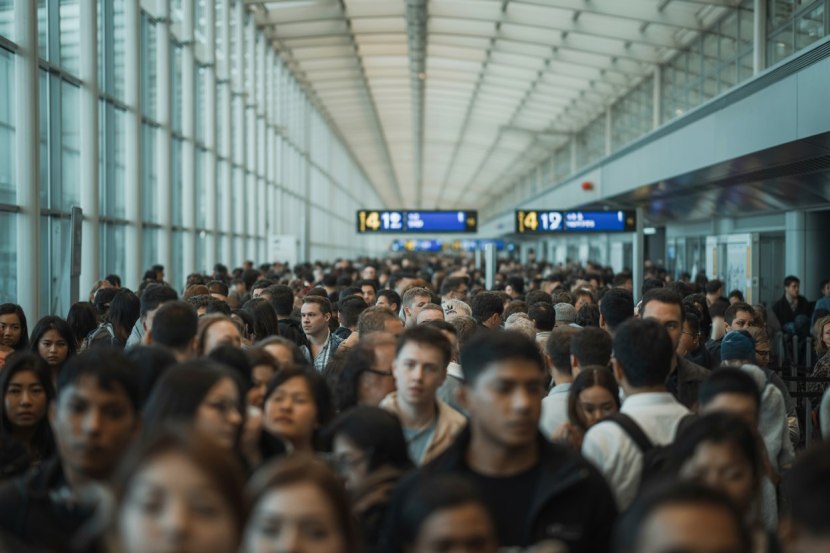Published on
October 24, 2025
Spain has long been a favorite destination for travelers, but recent changes are making trips a bit more complicated. From stricter border checks to increased tourist taxes, visitors must be aware of these new regulations. These adjustments aim to promote responsible tourism and protect local life, but they also mean longer waits and higher costs for tourists.
Stricter Border Controls for Visitors
Starting from October 12, 2025, Spain introduced the Entry and Exit System (EES), which requires travelers to undergo biometric checks. This system, part of a European Union effort to enhance border security, replaces the traditional passport-stamping process. Now, travelers will have their fingerprints and facial features scanned both on arrival and departure.
This change aims to streamline border security across the Schengen zone, but it could lead to longer queues at airports, particularly during peak travel times. Travelers should also be prepared to answer additional questions, such as their purpose for visiting and details about their accommodation.
For those planning to visit, it’s important to ensure that passports are valid for at least three months after leaving Spain. Travelers should also be aware of the 90-day stay limit within a 180-day period, which remains unchanged despite the new system.
Higher Tourist Taxes Impacting Your Stay
Spain is also increasing taxes for tourists, with some regions raising overnight visitor fees. In the Balearic Islands, these taxes will rise from around €3.90 to €5.85 per person, per night. Luxury hotel stays during peak seasons will see the highest fees, while cruise ship passengers will also experience steep increases, with some taxes going up by 200%.
Similarly, Barcelona plans to increase its tourist tax by the end of 2025. In some luxury hotels, visitors could face charges as high as €14 per night. However, children under 16 will remain exempt from these taxes.
Restrictions on Partying and Rentals
Spain’s crackdown on rowdy tourism is becoming more apparent. In destinations like Magaluf, Playa de Palma, and Ibiza, new regulations are limiting the amount of alcohol tourists can consume. The six-drink rule, which allows three drinks at lunch and three at dinner, is still in place. Additionally, the local government has banned pub crawls on the famous strip in Magaluf, in an effort to reduce alcohol-related incidents.
In Palma, the capital of Mallorca, the government has imposed stricter rules on short-term rentals. Starting from October 2025, no new tourist rentals or youth hostels will be allowed to open. This rule will also apply retroactively, meaning any pending applications will be rejected. Existing hostels may be converted into hotels or residential housing, further limiting accommodation options for travelers.
New Beach Regulations to Follow
For those looking to enjoy Spain’s beautiful beaches, new regulations have been introduced in Gran Canaria. Smoking and vaping are now banned, along with playing loud music, cooking, or using large umbrellas for shade. Tourists can also face fines for actions like picking up shells, turning over rocks, or blocking walkways. The fines for violating these regulations range from €30 to €2,900, depending on the severity of the offense.
Financial Changes to Be Aware Of
Spain’s central bank has begun phasing out damaged or crumpled €50 notes. Visitors should be mindful that worn-out banknotes may not be accepted in shops or restaurants. However, smaller denominations such as €5, €10, and €20 are still accepted without issue.
Local Rules Affecting Tourists
Some towns in Mallorca are becoming more selective about which tourists can access certain areas. In Sóller, for example, local authorities have implemented a ‘residents-only’ driving zone. Tourists who rent cars will no longer be allowed to drive through the old town and will need to park outside and use local transportation.
Why Spain Is Making These Changes
Spain is introducing these new rules to encourage more responsible tourism and protect local life, particularly in cities and regions affected by overcrowding. The goal is to ensure that visitors can continue to enjoy Spain’s many attractions while respecting the local culture and environment. Spain’s authorities want tourists to enjoy their stay, but they also want them to be mindful of local customs and regulations.
Travelers are encouraged to check the latest updates before their trip. Make sure your passport is valid, allow extra time at the airport for biometric checks, and familiarize yourself with local regulations to avoid fines.
Spain isn’t closing its doors to tourists; it simply wants visitors to experience its offerings in a more sustainable and respectful manner. Despite these new rules, Spain remains one of the top destinations for unforgettable holidays, from its warm beaches to its vibrant cities.
Image Source: AI
